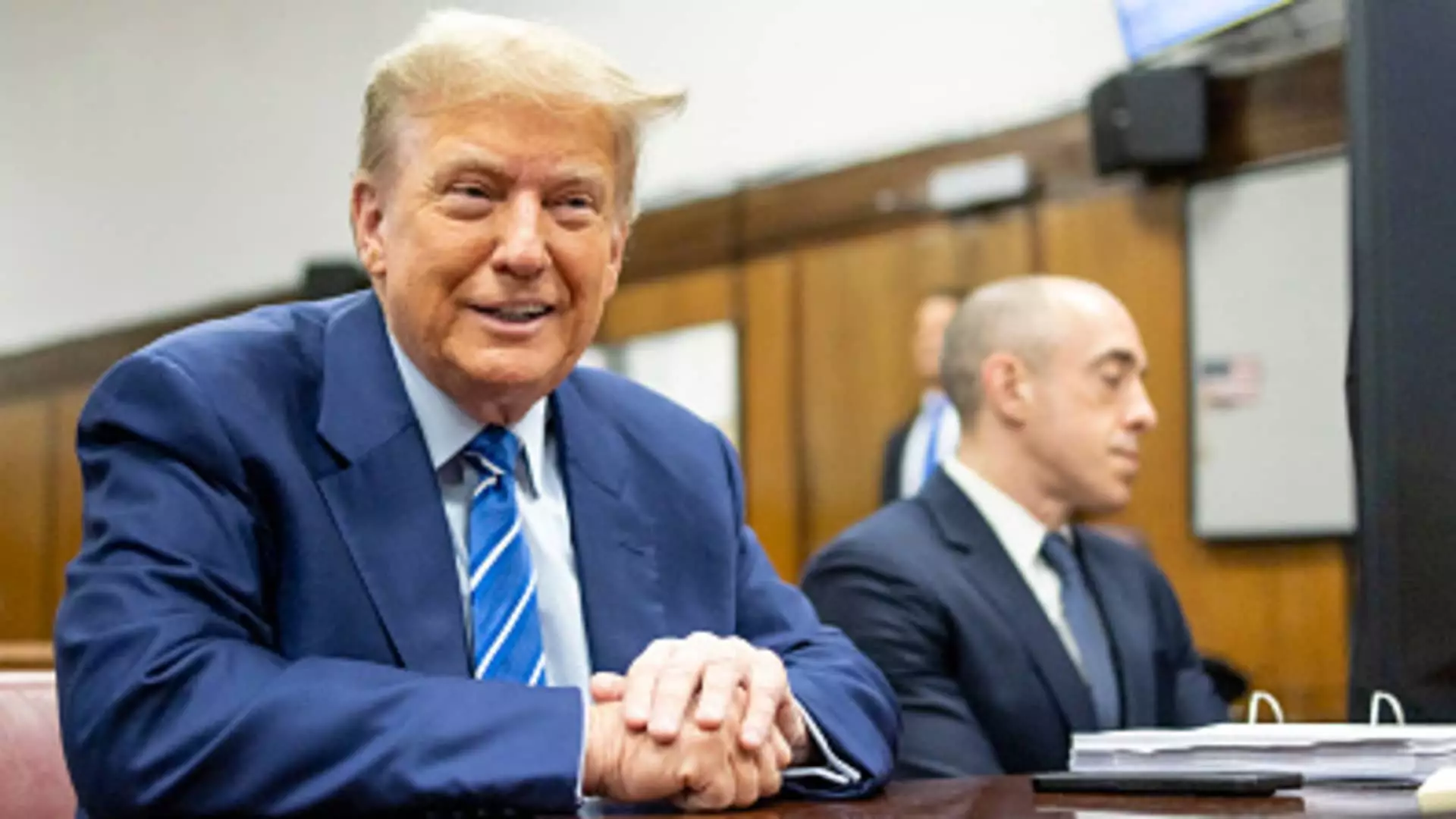Donald Trump’s ongoing legal challenges encapsulate a critical moment in U.S. political history, highlighting not only the intersection of law and politics but also eliciting discussions about the very nature of justice in the highest echelons of power. As recent developments reveal, the case surrounding Trump’s alleged hush-money payments and the legal strategies employed by both his attorneys and prosecutors attend to a broader narrative of political maneuvering amidst judicial proceedings.
On a notable Friday, Judge Juan Merchan made the decision to indefinitely postpone Donald Trump’s sentencing regarding his hush-money case, a decision steeped in both legal and political implications. The postponement serves as a critical juncture; the January sentencing initially set has been delayed, allowing Trump’s legal team to present motions aimed at dismissing the case entirely. The significance of this development cannot be understated, as it reflects a tactical retreat allowed by the judiciary amidst a charged political atmosphere.
Trump was found guilty of 34 counts of falsifying business records. However, the practice of law necessitates a thorough examination of the circumstances surrounding this case, which has evolved into a focal point for opinions on political bias and the accountability of public figures. The Manhattan District Attorney’s Office expressed an inclination to support the delay but simultaneously indicated their opposition to the prospective motion for dismissal, demonstrating the conflicting dynamics at play within the legal framework.
Trump’s legal representatives, including notable attorney Todd Blanche, posited that his status as a President-elect affords him crucial protections against criminal proceedings. This claim of immunity for a sitting or incoming president ignites essential discussions regarding accountability and the potential for political leaders to escape judgment due to their elevated status. Within a letter to the judge, the defense articulated their argument that the prosecution was politically motivated, suggesting that the judicial process itself is compromised by the specters of partisanship.
Such claims are polarizing; they provoke not only questions about legal precedents but also about the ethical implications of allowing public figures to shield themselves from legal consequences. Critics argue that this line of reasoning sets a dangerous precedent and undermines the rule of law—a cornerstone of any functioning democracy.
The hush-money case is but one of several legal woes besieging Trump. The Manhattan case stands out as the sole criminal matter to reach trial prior to his recent electoral victory, amplifying its significance. While the prosecution unfolds in the backdrop of his successful bid for the presidency, the outcomes of other criminal cases stemming from alleged misconduct during his prior term in office loom ominously. The juxtaposition of these proceedings and Trump’s political ambitions complicates the public’s perception of justice and political legitimacy.
The implications of these developments stretch beyond mere legalities; they pose serious questions about the future of American governance and the responsibilities of elected officials. As details of Trump’s interactions with the law continue to unfold, they serve as a potent reminder of the systemic challenges within American politics and justice.
The Way Forward: Potential Outcomes and Consequences
Looking ahead, the future of Trump’s legal battles looks precarious, rife with potential for both turmoil and resolution. Prosecutors anticipate the abandonment of some cases in light of his recent elections, while significant delays in state legal challenges, such as those in Georgia, could extend well into the future. As he prepares to assume office once again, Trump’s capacity to navigate these legal impediments becomes pivotal—not only for his political career but for the broader landscape of American politics.
In summation, Trump’s legal trials encapsulate a narrative that goes far beyond the individual; they raise fundamental inquiries about the essence of justice, accountability, and the potent relationship between law and politics in a democratic society. As political figures grapple with the intersecting realities of their actions and the law, the discourse surrounding these events will undoubtedly shape the future of governance in the United States, making it a moment worth scrutinizing closely.

Leave a Reply